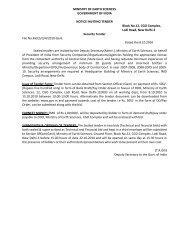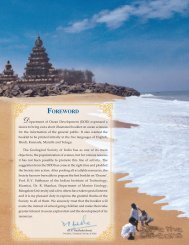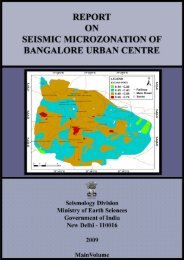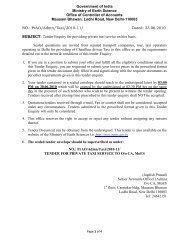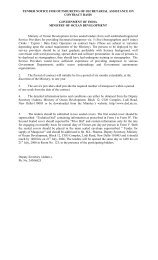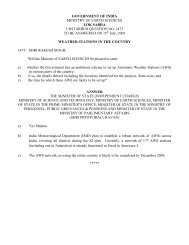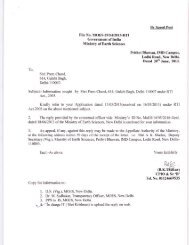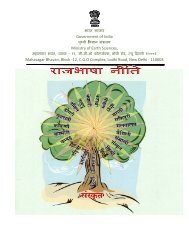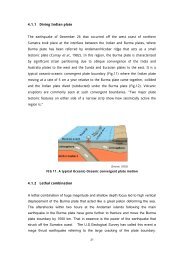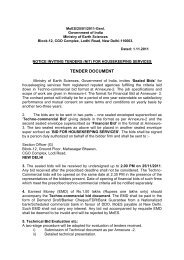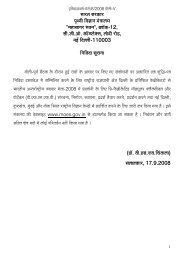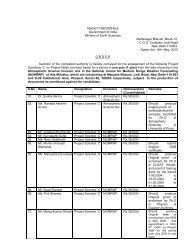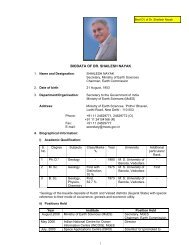Annual Report 2007-2008 - Ministry Of Earth Sciences
Annual Report 2007-2008 - Ministry Of Earth Sciences
Annual Report 2007-2008 - Ministry Of Earth Sciences
Create successful ePaper yourself
Turn your PDF publications into a flip-book with our unique Google optimized e-Paper software.
<strong>Ministry</strong> of <strong>Earth</strong> <strong>Sciences</strong>, <strong>Annual</strong> <strong>Report</strong> <strong>2007</strong>-08Council for Scientific Unions (ICSU) and the World Meteorological Organization (WMO), it isactually the fourth polar year, following those in 1882-83, 1932-33, and 1957-58 (it started as aPolar Year, but was subsequently re-named as “International Geophysical Year”). The officialperiod of the current IPY will be from 1 March <strong>2007</strong> to 1 March <strong>2008</strong> in order to allow observationsduring all seasons, and the possibility of two summer field seasons in each polar region. Theaims of IPY programme are:To explore new scientific frontiers,To deepen our understanding of the polar processes and their global linkages, to increaseour ability to detect environmental and societal changes,To further involve the Arctic residents with research activities, andTo attract and develop the next generation of polar scientists, engineers and logistics experts.India is actively involved with IPY <strong>2007</strong>-08, and has constituted a national committee chaired by DrP. S. Goel (<strong>Ministry</strong> of <strong>Earth</strong> <strong>Sciences</strong>, New Delhi) with Shri Rasik Ravindra (National Centre forAntarctic & Ocean Research, Goa) as secretary and contact person.The launching of the Indian chapter of the International Polar Year (IPY) <strong>2007</strong>-<strong>2008</strong> took place atNational Centre for Antarctic and Ocean Research (NCAOR), Vasco-de-Gama, India on 1 March,<strong>2007</strong>. A special function was organized at NCAOR to mark this occasion. An overview of IPY andits significance was presented by Sri Rasik Ravindra, Director, National Centre for Antarctic &Ocean Research, Goa. He informed about the need, goals and scope of IPY (<strong>2007</strong>-<strong>2008</strong>). Theinaugural lecture was delivered by Prof. U. R. Rao, former Chairman, Indian Space ResearchOrganization, who elucidated various positive and negative feedbacks affecting the global warmingand provided insights about the latest developments in this field. Subsequently, another lecturewas delivered by Dr S. R. Shetye, Director, National Institute of Oceanography, Goa on the needto manage our environment. It illustrated how different systems through various feedbacks willmitigate the effect of global warming. Later, during the function, the “Calendar of Events” beundertaken throughout <strong>2007</strong>-<strong>2008</strong> was released by Prof. U.R. Rao.12



